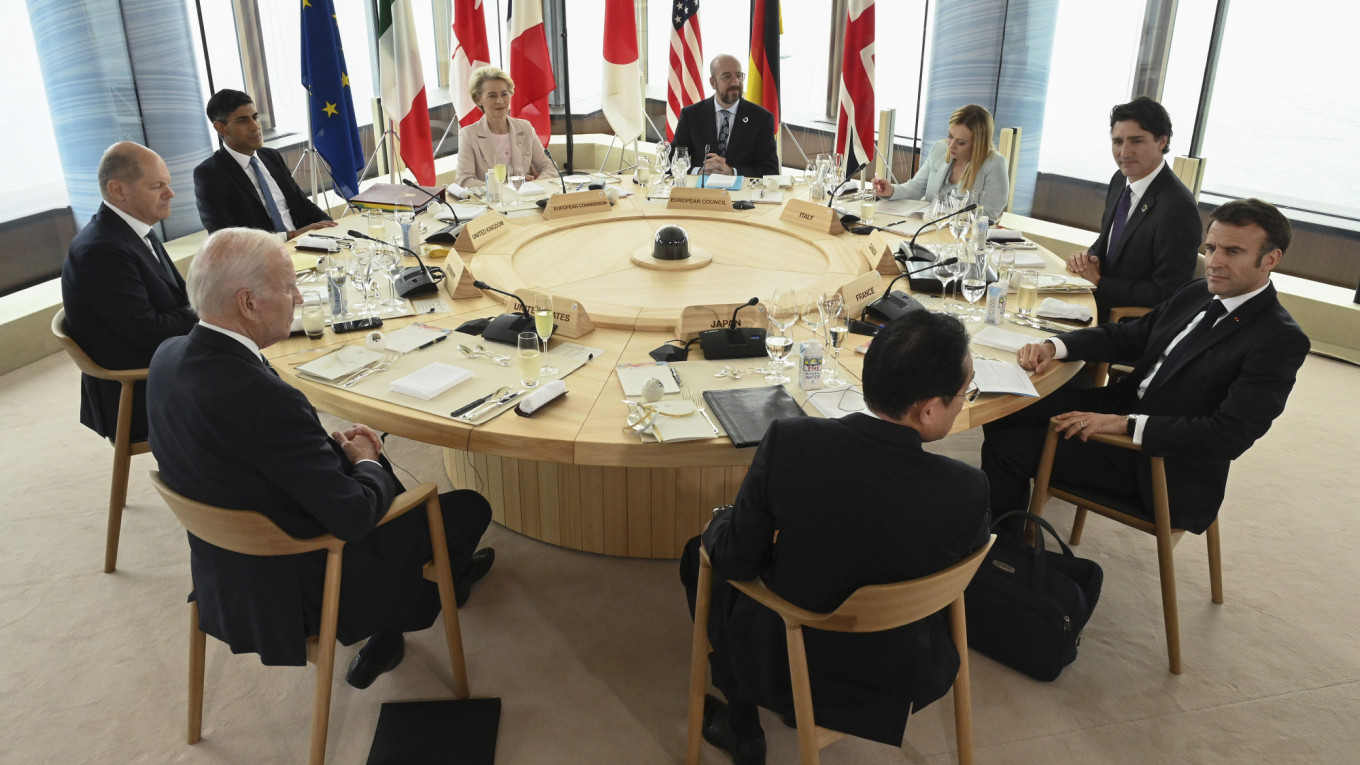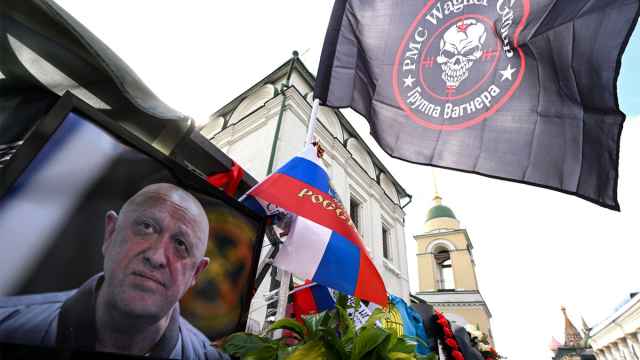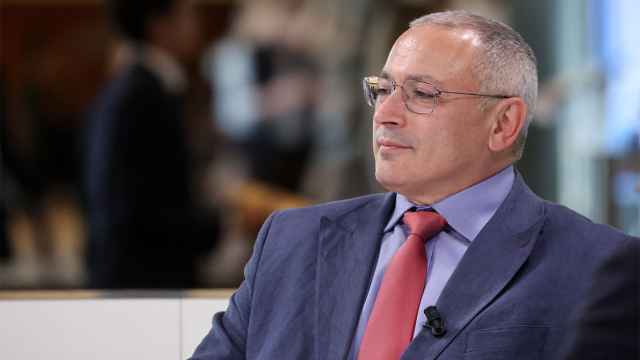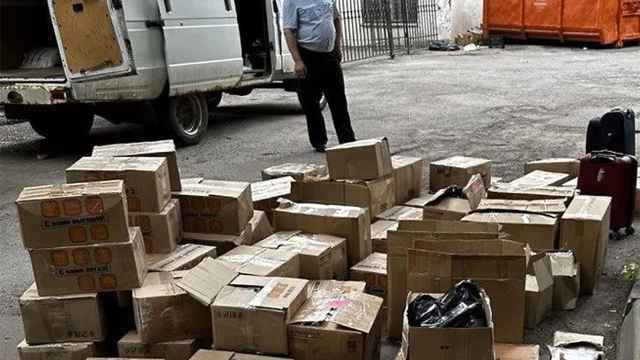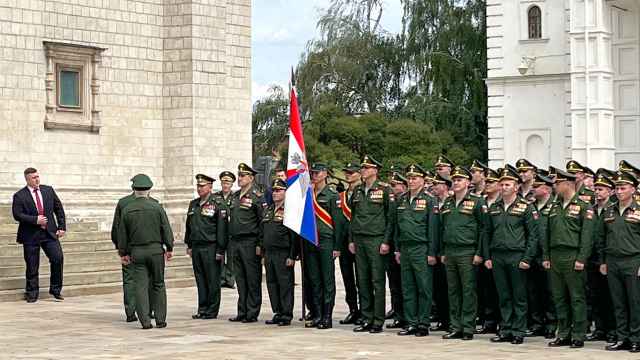Countries around the world were on Saturday closely watching events unfolding in Russia, where a mutiny by the Wagner mercenary group posed the most serious challenge yet to President Vladimir Putin's long rule.
Here is what governments and analysts are saying about the extraordinary situation taking place in nuclear-armed Russia:
Ukraine
Ukrainian President Volodymyr Zelensky said that the Wagner mutiny showed Russia was weak.
"Russia's weakness is obvious. Full-scale weakness. And the longer Russia keeps its troops and mercenaries on our land, the more chaos, pain, and problems it will have for itself later," he said in a statement on social media.
Deputy Defense Minister Ganna Malyar said it provided a "window of opportunity" for Kyiv on the battlefield.
The United States
U.S. President Joe Biden was briefed on the situation in Russia and Washington and "will be consulting with allies and partners on these developments," National Security Council spokesman Adam Hodge said.
Europe
European Union chief Charles Michel tweeted that the bloc was "closely monitoring the situation in Russia as it unfolds. In touch with European leaders and G7 partners."
"This is clearly an internal Russian issue," he wrote, adding that "our support for Ukraine" remains "unwavering."
The bloc's diplomatic chief Josep Borrell said the EU was in "permanent contact with our ambassador in Moscow and continuing our internal consultations with our member states."
NATO spokesperson Oana Lungescu said only the alliance was "monitoring the situation."
British Prime Minister Rishi Sunak urged "all parties to be responsible and to protect civilians."
"We're in touch with our allies as the situation evolves. I'll be speaking to some of them later today and the most important thing is for all parties to behave responsibly," he told the BBC.
Meanwhile, Czech politicians used the mutiny as a moment to take a stab at Russian leadership.
"I can see my summer holiday in Crimea is approaching," said Foreign Minister Jan Lipavsky, referring to the territory annexed by Russia from Ukraine in 2014.
"So we finally know what the Russians mean by a Special Operation," said Czech Defense Minister Jana Cernochova.
"After 16 months of the war in Ukraine, Russia is waging war on Russia. No surprise. It's a tradition over there. Failed wars end up with the Tsar being executed, with chaos and with a civil war supervized by snoopers. Congratulations," she said.
Austrian Chancellor Karl Nehammer, who has met Putin since the launch of the Ukraine war, warned of the nuclear risks of the instability in Russia.
"The operations of the Russian Federation are always of the utmost importance, because the Russian Federation has a great potential for biological, chemical and nuclear weapons," he said.
In Berlin, "the government is closely following the events in Russia," a spokesman told AFP. The foreign ministry advised avoiding central Moscow and government and military buildings in the capital.
In Paris, French President Emmanuel Macron is also keeping a close eye, the Elysee said. "We remain focused on supporting Ukraine."
In Rome, Italian Prime Minister Giorgia Meloni's office said the events "show how the aggression against Ukraine is causing instability also within Russia."
In Sweden, Foreign Minister Tobias Billstrom tweeted: "The government is closely following the situation in Russia. The situation is serious."
In Norway, Foreign Minister Anniken Huitfeldt said Oslo was "closely following the dramatic situation in Russia and are in close contact with the embassy in Moscow."
Belgian Defense Minister Ludivine Dedonder tweeted that the situation was "serious" and he was watching to see "what impact it has on the conflict."
G7
The EU's Borrell announced that foreign affairs ministers of the G7 nations held a call to "exchange views" on the situation Saturday.
Borrell didn't provide details of the exchange in his tweet, which Berlin also confirmed, saying German Foreign Affairs Minister Annalena Baerbock "just discussed the situation" with her G7 counterparts.
Middle East
Qatar's foreign ministry said it was following the events "with great concern" and warned the situation could "have negative repercussions on international peace and security, and on food and energy supplies."
A senior advisor to the president of the United Arab Emirates, Anwar Gargash, said: "In light of the serious developments taking place in Russia, the need for a political solution that addresses the Ukrainian crisis and its repercussions has become more urgent."
Israeli foreign minister Eli Cohen advised citizens to avoid traveling to Russia, adding: "We are preparing for any scenario."
Analysts
The U.K. Defense Ministry said in an intelligence update that "this represents the most significant challenge to the Russian state in recent times."
"Over the coming hours, the loyalty of Russia's security forces, and especially the Russian National Guard, will be key to how the crisis plays out," it said in a tweet.
The U.S.-based Institute for the Study of War said the armed rebellion was "unlikely to succeed" but that "an armed Wagner attack against the Russian military leadership in Rostov-on-Don would have significant impacts on Russia’s war effort in Ukraine."
A Message from The Moscow Times:
Dear readers,
We are facing unprecedented challenges. Russia's Prosecutor General's Office has designated The Moscow Times as an "undesirable" organization, criminalizing our work and putting our staff at risk of prosecution. This follows our earlier unjust labeling as a "foreign agent."
These actions are direct attempts to silence independent journalism in Russia. The authorities claim our work "discredits the decisions of the Russian leadership." We see things differently: we strive to provide accurate, unbiased reporting on Russia.
We, the journalists of The Moscow Times, refuse to be silenced. But to continue our work, we need your help.
Your support, no matter how small, makes a world of difference. If you can, please support us monthly starting from just $2. It's quick to set up, and every contribution makes a significant impact.
By supporting The Moscow Times, you're defending open, independent journalism in the face of repression. Thank you for standing with us.
Remind me later.


